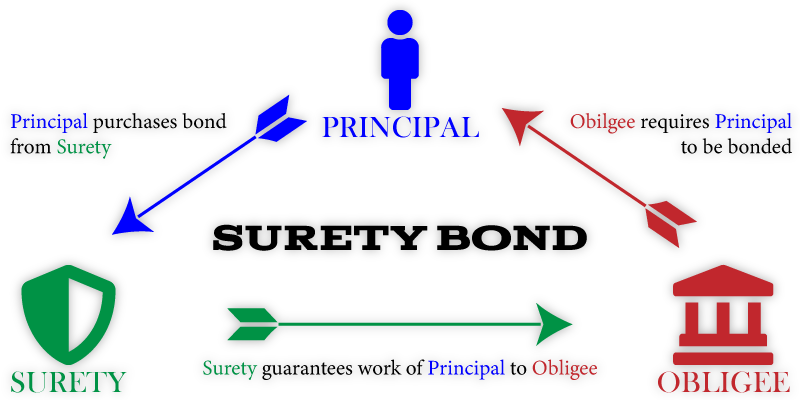Checking Out the Legal Aspects of Bid Bonds in Building Contracts
Checking Out the Legal Aspects of Bid Bonds in Building Contracts
Blog Article
Comprehending the Relevance of Bid Bonds in Construction Tasks
In the realm of building and construction tasks, the role of bid bonds can not be overemphasized. These economic tools work as a crucial safeguard for job owners, making sure that specialists that win bids are truly committed and economically efficient in performing the project. This layer of safety not just fortifies trust fund in the bidding procedure yet also urges an affordable atmosphere that can lead to more equitable pricing. For contractors, safeguarding proposal bonds is equally substantial as it improves their credibility and market standing. However exactly what are bid bonds, and just how do they operate to give these benefits?
What Are Bid Bonds?
In construction jobs, bid bonds are often an important component of the bidding process. A proposal bond is a sort of surety bond that offers economic assurance to task owners that the contractor will certainly recognize its bid and, if granted the agreement, will certainly execute the contract according to the terms described. Essentially, bid bonds function as a guard, making certain that professionals send significant and competitive bids.
The main function of a proposal bond is to secure the task proprietor from prospective monetary losses that may develop if the winning prospective buyer fails to start the job. This security is vital in preserving the stability of the bidding process, as it inhibits pointless or non-committal bids. Bid bonds commonly entail 3 celebrations: the principal (the contractor), the obligee (the project owner), and the surety (the entity providing the bond)
The guaranty business evaluates the contractor's monetary stability and ability to finish the job efficiently before releasing a bid bond. This assessment process adds an added layer of scrutiny, more making certain that just qualified and reputable specialists take part in the bidding procedure. As a result, bid bonds play a crucial function in cultivating depend on and dependability in building and construction task bidding process.

Just How Bid Bonds Job
Comprehending the mechanics of quote bonds requires a recognition of their function in ensuring a competitive and dependable bidding process. A quote bond is a kind of guaranty bond that contractors submit along with their bid proposals for construction tasks. It works as a monetary assurance to the project owner that the contractor is major, qualified, and ready to undertake the task at the quote cost.
The process starts with the professional approaching a surety company to secure a quote bond. Bid Bonds. The guaranty business evaluates the professional's monetary stability, experience, and performance background prior to issuing the bond. As soon as obtained, the bid bond is sent with the specialist's quote to the task proprietor
If the service provider is granted the job but falls short to enter into the agreement or provide the called for performance and payment bonds, the task owner can claim the quote bond. The surety business after that compensates the task proprietor up to the bond's penal amount, typically a percent of the proposal quantity, typically between 5% and 20%.
This device discourages frivolous quotes and ensures that just certified contractors take part in the bidding process, consequently guarding the rate of interests of all stakeholders included.
Advantages for Task Owners
For task owners, bid bonds supply a series of considerable advantages that boost the total efficiency and dependability of the building bidding process. Mainly, quote bonds guarantee that only serious and financially stable service providers join the bidding. This pre-qualification process minimizes the probability of project delays or terminations brought on by professionals who are incapable to meet their legal commitments.
Additionally, quote bonds provide financial defense to project owners. If the winning prospective buyer fails to perform the contract, the bid bond compensates the owner for the distinction between the failing specialist's proposal and the following least expensive bid. This economic guard guarantees that the project proprietor does not incur unforeseen expenses because of contractor non-performance.
Bid bonds likewise add to maintaining a competitive bidding process environment. Recognizing that a bid bond is needed, professionals are more probable to send realistic and exact proposals, which consequently assists job proprietors obtain reasonable market value for their tasks. This one-upmanship is critical in managing the task's spending plan properly.
Additionally, the requirement of a proposal bond underscores the task proprietor's dedication to a structured and transparent bidding process, therefore enhancing the credibility of the task and bring in credible professionals.
Advantages for Specialists

Bid bonds also assist contractors handle their risk. Must a professional be incapable to honor their bid, the bond makes certain that the job owner is made up, consequently securing the specialist from potential legal disagreements or financial penalties. This my review here can be especially advantageous in large projects where the risks are high.

Key Factors To Consider
When evaluating proposal bonds in building projects, contractors have to carefully consider a number of key aspects to ensure they are making educated decisions - Bid Bonds. The economic stability of the guaranty company releasing the bid bond is essential.
One more crucial factor to consider is the bid bond's expiration date and the period for which it will stay legitimate. This ensures that the bond will cover the entire bidding process and any potential delays. Service providers must likewise assess the problems and terms related to the bid bond, consisting of any kind of indemnity arrangements that might need settlement to the guaranty in case of a case.
Last but not least, service providers must assess the legal needs and regulations regulating bid bonds in the project's jurisdiction. Conformity with neighborhood regulations is important to prevent lawful issues that can threaten the project. By thoroughly thinking about these factors, professionals can much better navigate the complexities see this website of quote bonds and shield their interests.
Final Thought
In summary, bid bonds serve as an essential monetary guard in construction jobs, protecting project owners from possible losses due to non-fulfillment by winning prospective buyers. Eventually, the implementation of quote bonds sustains the effective implementation of building and construction tasks by enhancing count on and monetary guarantee.
A quote bond is a type of surety bond that provides economic assurance to job owners that the professional will recognize its proposal and, if awarded the agreement, will certainly execute the arrangement according to the terms described. A quote bond is a kind of surety bond that professionals submit along with their quote propositions for building and construction tasks. As soon as obtained, the proposal bond is submitted with the service provider's bid to the job proprietor.
If the winning bidder falls short to perform the contract, the bid bond compensates the owner for the distinction between the skipping professional's bid and the following lowest proposal. Knowing that a bid bond is called for, specialists are more most likely to send accurate and sensible bids, which in turn see post aids job proprietors obtain reasonable market costs for their projects.
Report this page